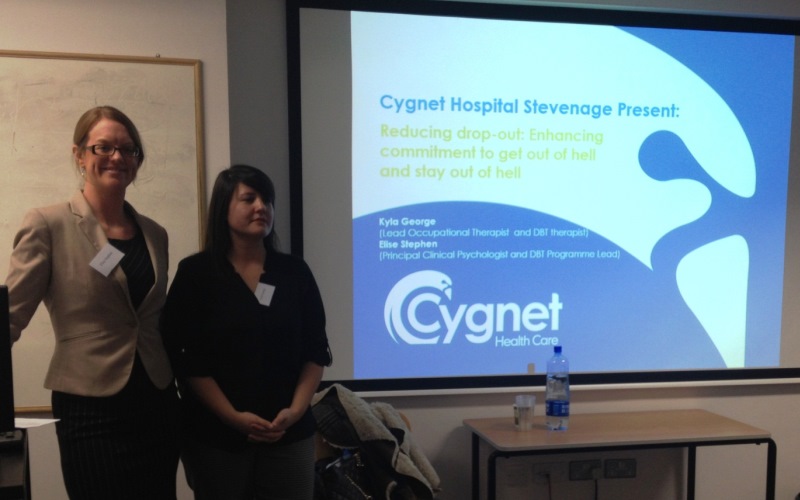
This improvement followed a process of learning and reflection within the DBT team to improve service user engagement in the hospital’s DBT programme. The resulting initiatives fell into two broad categories, enhancing initial commitment and enhancing ongoing commitment.
To improve initial commitment the team revised the way referrals to the DBT programme were assessed and service users were encouraged to have clear ‘life worth living’ goals in order to be accepted on to the programme. Finally, therapists set clear behavioural goals around high-risk behaviours that were likely to contribute to drop-out. These goals needed to be achieved within pre-treatment to allow the individual to be accepted onto the full program.
To improve ongoing commitment a number of initiatives were introduced including:
- Increasing the Skills Group programme from 6 to 8 months to enhance understanding and improve content
- Encouraging service users to volunteer as group presenters
- Peer recognition of the most engaged service user in each group session
- Ward staff participating as DBT skills coaches providing service users with increased access to support
- The introduction of a voluntary weekly homework club to support commitment understanding
On 14th December 2015, Elise Stephen (Principal Clinical Psychologist and DBT Programme Lead) and Kyla George (Lead Occupational Therapist and DBT Therapist), were invited to present these results at the annual conference for the Society for DBT, at Trinity College in Dublin.
The presentation, entitled ‘Reducing drop-out: Enhancing commitment to get out of hell and stay out of hell’ was extremely well received, with other services requesting additional information regarding these innovative developments.